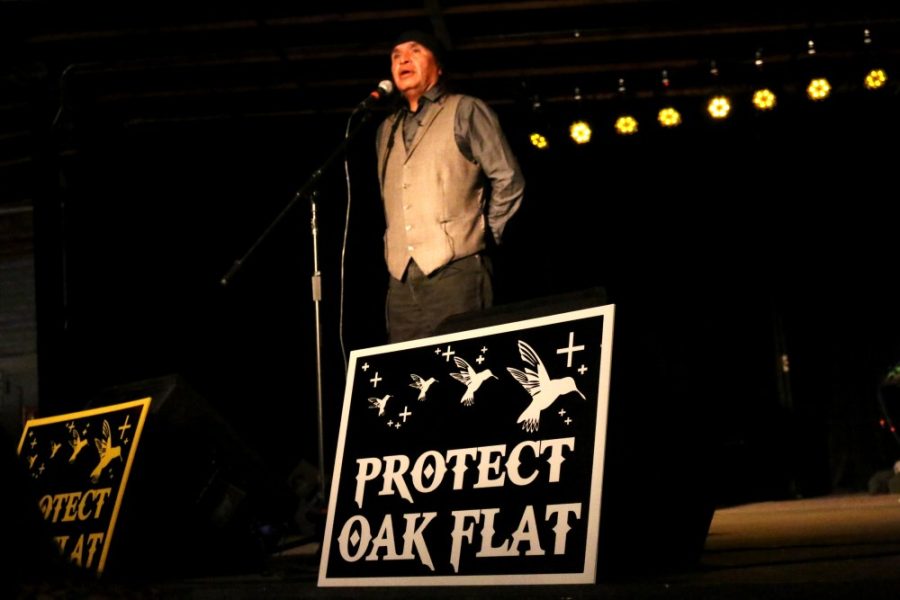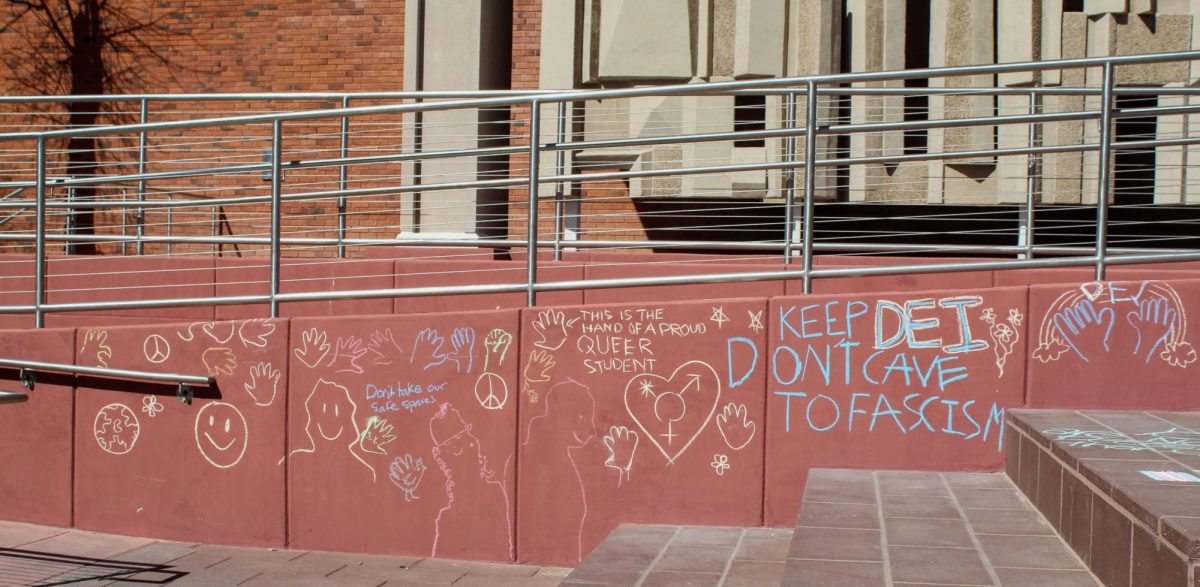Over 200 people gathered to show their support for Oak Flat, the Standing Rock encampment and the Tohono O’odham Nation Thursday night in downtown Tucson.
Oak Flat, located four miles east of Superior, Arizona in the Tonto National Forest, is a desert riparian area of land that attracts bikers, hikers, bird watchers and campers. Rock climbing and bouldering is also popular there with more than 2,500 established climbing routes. It is also a sacred site to the Apache Native Americans, who live on the reservation there.
Oak Flat also sits on top of one of the largest untapped deposit of copper in the world, according to Resolution Copper, a mining company located in Phoenix and owned by Rio Tinto and BHP Billiton,
RELATED: Dakota access pipeline rally: Stand in solidarity with Standing Rock
On December 19, 2014, President Obama signed into law the National Defense Authorization Act, a must-pass bill that included an unrelated land transfer agreement between Resolution Copper and the U.S. Forest Service. The agreement gives Resolution Copper control of 2,400 acres of land in and around Oak Flat in exchange for 5,300 acres of conservation land throughout Arizona.
This has lead to conflict with the tribes as well as environmentalists and other activists.
“I am standing here to fight so that my children will be able to go back home to Oak Flat,” 17-year-old Naelyn Pike said during the Tucson rally. “So that my children are able to stand and be able to be so proud to be Apache and be able to pray without our land being desecrated for money, for greed, for political leaders to have that money in their pocket or those corporations that come and take and take until there’s nothing left. Once they leave what will we have?”

Resolution Copper plans on cutting into the earth with a method called “block caving,” the mine would span 1.8 miles and be 950 feet deep after the ore is removed and the land above caves in. More than 1,000 permanent jobs would also be created, according to the company.
Block caving is a process that uses gravity as the main force to collect ore. After removing ore from the bottom of the orebody, a void is created, which causes more ore to fall into that void. This ore is then collected and hauled to the surface.
RELATED: Tucson community turns out to march for women’s rights
While this method is supposedly less damaging to the environment because it limits the amount of blasting and drilling, the land above it will forever be ruined after the cave in. Also, the 1.5 billion tons of waste from the mine will create a 500-foot-high pile over its 40-year lifespan.
According to a report done by hydrologists brought in by the Apache, the mining would contaminate the ground water, aquifer and deep water, which will affect not only the wildlife in the area but contaminate water as far as Mesa and Sierra Vista.
“We can’t survive without water. It’s not just for the Indians, clean water, it’s for everyone,” said attendee Shannon Haggerty.
In protest to the land exchange, a number of San Carlos Apache set up the Apache Stronghold to protect the sacred land. The land includes areas where coming of age ceremonies are held and the Apache Leap rock formation.

This event was held to raise money and awareness for the 3rd annual March to Oak Flat that will take place on Feb. 16-19.
Speaking for Congressman Raul Grijalva, Ruben Reyes said that the Save Oak Flat bill will be reintroduced into Congress.
“The federal government has a legal and moral obligation to respect such cultural, historic, public lands and not prioritize corporate greed and foreign mining industry,” Reyes said. “We don’t know how far [the bill] is going to go in this Congress, but we know that we must keep fighting.”
The land will not be turned over to Resolution Copper until an environmental impact statement is published as required by the National Environmental Policy Act. In the meantime, the Apache and others continue to fight to have the swap reversed.
“As Americans and as religious people, we just can’t sit back,” Apache Stronghold leader Wendsler Nosie Sr. said. “When you do a spiritual movement that’s one of the hardest movements to do because it’s so questioning because answers don’t come right away.”
“Then I learned from the old people and from my mother telling me that, ‘When it’s right, it’s hard. But you gotta remember son, you’re fighting the greatest evil in this world.'”
Follow Rocky Baier on Twitter.









